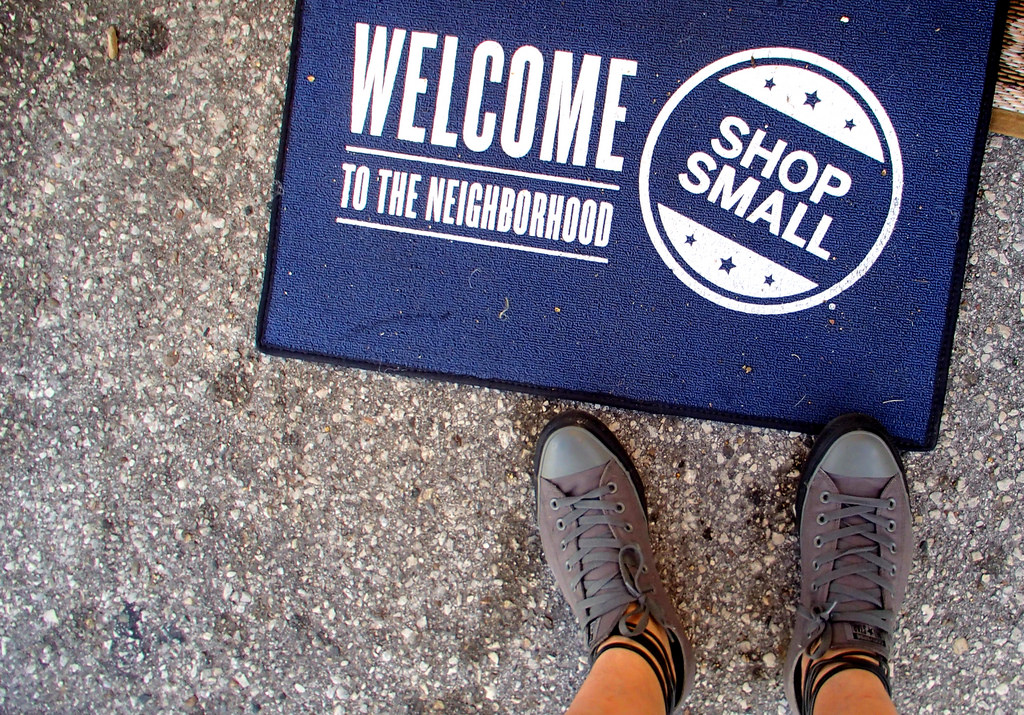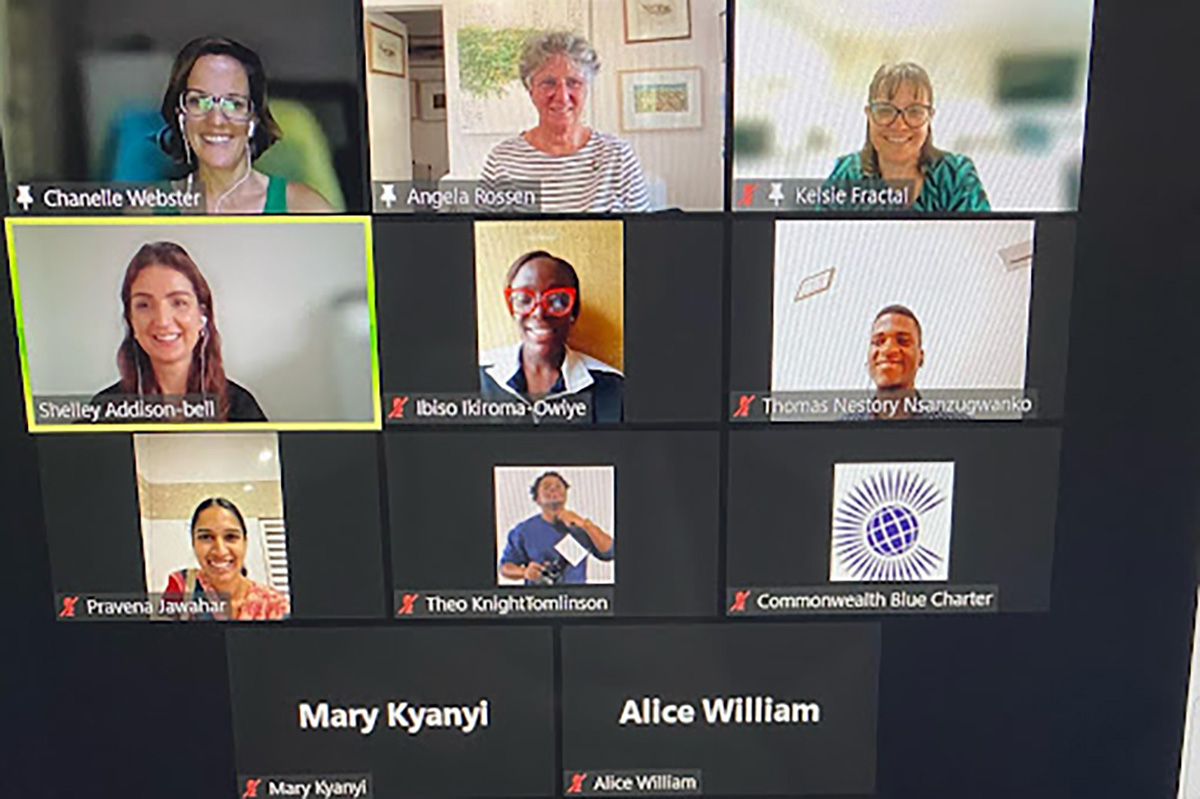“Towards a culture of social innovation”
October 2 Many youth are competing for jobs or making ends meet as entrepreneurs, writes Carole Nyemeck, 23, a Commonwealth Correspondent from Cameroon, who reports there is a significant pool of social innovation talent. She looks at the business models needed to transform societal problems into sustainable entrepreneurial innovations.
Many youth are competing for jobs or making ends meet as entrepreneurs, writes Carole Nyemeck, 23, a Commonwealth Correspondent from Cameroon, who reports there is a significant pool of social innovation talent. She looks at the business models needed to transform societal problems into sustainable entrepreneurial innovations.
Since the beginning of the capitalist era, business models have clung to financial metrics as main measurement of an enterprise’s capacity to be profitable and so succeed. Peter Drucker accentuated this view in ‘Innovation and entrepreneurship principles and practices, 1985’, when he remarked that in the mid 1980s in America, “there was an abundance of young risktakers who were willing to endure the ruthlessly long hours required by entrepreneurial opportunities, especially because of the potential success they offered.” Thus, entrepreneurs were driven mostly by short-term profit motives.
However, in the developing world to which Cameroon belongs, things have not really turned out that way. Markets have long been “small, fragmented, and imperfect due to lack of infrastructure, low per capita incomes, misguided policies, and institutional constraints” (Adam Smith, ‘The wealth of nations, 1776’), which made it difficult for people to have even minimal incentives to become entrepreneurs, let alone think about making durable profits. Consequently, the main firms that prospered were the foreign-owned.
Afterwards, the second major trend that has emerged in Cameroon from present is survival entrepreneurship, where people usually have neither the academic nor the professional profiles to engage in the chosen entrepreneurial activity, but do it out of necessity. Hence, the predominantly informal sector seems to threaten the design of effective business models capable of enabling aspiring entrepreneurs to be sustainably self-employed. It hinders their capacity to become entrepreneurs of the formal economy. In a context like that, it becomes crucial to develop models that empower people to regain control over the social impediments that locked them into survival entrepreneurship in the first place. This means that new business models more focused on social innovation and less on short-term financial parameters should be built.
Let’s suppose I am an aspiring Cameroonian social entrepreneur who has identified a core social problem in my environment: developing a cheaper but effective system of wastewater treatment and rain water recycling for safe reuse.
The seven-step plan that can be used to develop and evaluate such a model is:
- Building a leadership team in charge of defining a clear-cut vision of the problem and designing a suitable strategy: since our vision is to develop a cheaper but effective system, our social innovation strategy will be a combination of new production process and new service.
- Using values and missions that drive positive social change. Our core value would be the promotion of comprehensive access to sustainable, clean, and fresh water. Our mission would be to respond to the threefold problem of scarcity, time-consumption and expensiveness that comes with access to a good which, given its vital character, should be easily accessible to all. A second mission would be to considerably reduce the number of diseases and/or deaths related to dirty water or lack of water access.
- Finding an original technique or technology niche: we will evaluate past research projects realised in the domain of water access, to see which technique/technology they used to creatively reconstruct and experiment. The results of the evaluations will allow us to know what is most appropriate for our system building.
- Emphasising team collaboration and bettering work process and practices through repeated, accrued performance: we will work hard at firmly imparting and consolidating the vision, strategy, values, missions, and technology niche agreed upon.
- Increasing efficiency by moving the basic dynamics of production back and forth between team leadership and users: developing and installing our system in a way that simplifies its utilisation and appropriation by the targeted population.
- Expanding the strategic use of information and communication networks to establish and nurture partnerships: developing a marketing strategy that makes our social innovation known, so that we may attract potential investors, partners and volunteers.
- Engaging in concerted action with public-private-civil society actors: the overall sustainability and effectiveness of our social innovation depends on the strength of our cooperation and collaboration with public and private actors, as well as fellow civil society actors.
Focusing more on the foreseen social impact and less on the short-term financial side is an essential condition for Cameroonians to get out of unemployment and survival entrepreneurship and thus become sustainably self-employed.
Below are some of the most visible Cameroonian startups at the heart of social innovation from 2006 to 2016:
| Startup
|
Key social innovation | Sector of impact | Technique or technology |
| Himore Medical Equipments | Cardiopad; touch-screen medical tablet for heart-related diseases | Cardiovascular health | Hardware technology and assembling techniques
|
| Gifted Mom | Mobile health platform for pregnant women and new mothers
|
Maternal and infant health
|
Software technology |
| Emerald Moringa Tea | Natural dietary supplement that reduces the risk of diabetes | Diabetes prevention and health care | Sustainable agricultural production (harvesting and drying techniques)
|
| CLAC | Khan Academy experiment in traditional classrooms | Science and technology education
|
Combination of open-source software technology and traditional classroom teaching |
| ASCOVIME | Free weekly provision of health care, surgery and school equipments to rural populations
|
Medical care and education (through school supplies) | Movable medical equipments and a huge network of volunteers |
| Camidus Land Information Systems | Design of civic technologies for sustainable management of cities
|
Urban planning, regional and sustainable development
|
Information systems’ technologies |
| AgriTech | Development of sustainable and efficient agricultural practices | Industrial Agriculture | Farming technologies and harvesting techniques
|
| Manga’s Bags | The use of recycled materials to manufacture bags
|
Environment preservation and textiles
|
Ecological recycling and manufacturing
|
| Ndoto
|
Supplying electricity through the creation of a smart meter
|
Sustainable energy | Electrical engineering |
| Madlyn Cazalis | Creation and commercialisation of local cosmetics
|
Cosmetology industry | Cosmetics with Cameroonian products
|
| DroneAfrica
|
Conception of drones | Industrial development | Aerospatial physics |
| HARAMBE Cameroon | Incubation of social enterprises and design of problem-solving projects | Social economy and entrepreneurship | Business development and coaching, and social business bank
|
| Agro-Hub | Assistive marketing and information platform for agriculturers
|
Agricultural marketing and information | Marketing, distribution, supply, training and consulting
|
| KristDev | NetSkools; online platform of access to empirical education data and modelling
|
Educational statistics and performances
|
Software technology |
| CLAC | Street CLAC ; free access to mobile library for underprivileged neighborhoods
|
Access to knowledge and quality education | Mobile library through bus |
Source: Carole Audrey Nyemeck
References:
- Phills; Deiglmeier; and Miller; (Fall 2008). “Rediscovering social innovation”. The Stanford Social Innovation Review.
- Robin Murray; Julie Caulier-Grice; and Geoff Mulgan; (March 2013). “The Open Book of Social Innovation”. Social innovator series.
- Drucker, Peter (1985). “Innovation and entrepreneurship principles and practices”.
- Smith, Adam (1776). “The wealth of nations”.
- Bronwyn H. Hall and Nathan Rosenberg; (2010). “Handbook of the economics of innovation”. Volume I. Elsevier.
- Szirmai, Adam; Naudé, Wim; and Goedhuys, Micheline; (2011). “Entrepreneurship, Innovation, and Economic Development”. Chapter 1. Oxford University Press.
- Ngoasong, Michael Zisuh (2007). “Does innovation matter for economic development? An empirical study of small and medium sized enterprises in the city of Kumba – Cameroon”. Studia Universitatis Babes-Bolyai: Negotia, 52(1) pp. 91-100.
Photo credit: the past tends to disappear Day 336 Shop Small via photopin (license)
…………………………………………………………………………………………………………………
About me: I am a student and blogger who loves to describe myself as a practical dreamer. I am best accomplished when I challenge the status quo and step out of my comfort zone.
I feel deeply interested in becoming a research economist. What captivates me in that career is the whole process of researching, devising, implementing, evaluating and analysing policies, models and programmes that cater for society’s needs. To concretise that aspiration, I hope to join the academia and research worlds.
…………………………………………………………………………………………………………………
Opinions expressed in this article are those of the author and do not necessarily represent the views of the Commonwealth Youth Programme. Articles are published in a spirit of dialogue, respect and understanding. If you disagree, why not submit a response?
To learn more about becoming a Commonwealth Correspondent please visit: http://www.yourcommonwealth.org/submit-articles/
…………………………………………………………………………………………………………………






